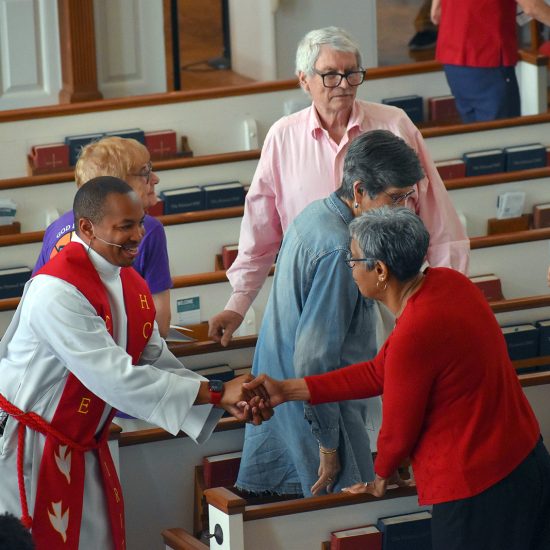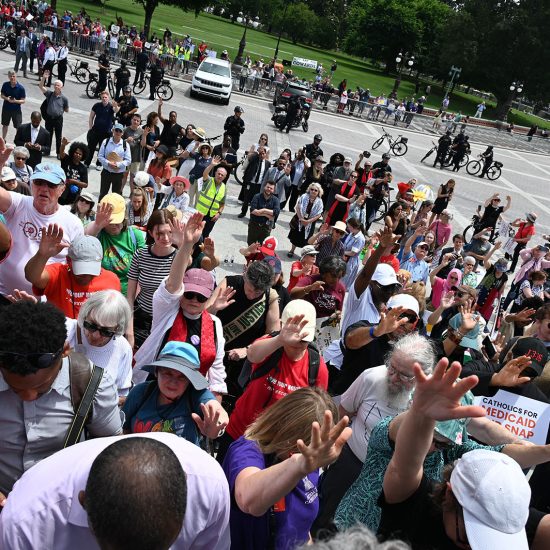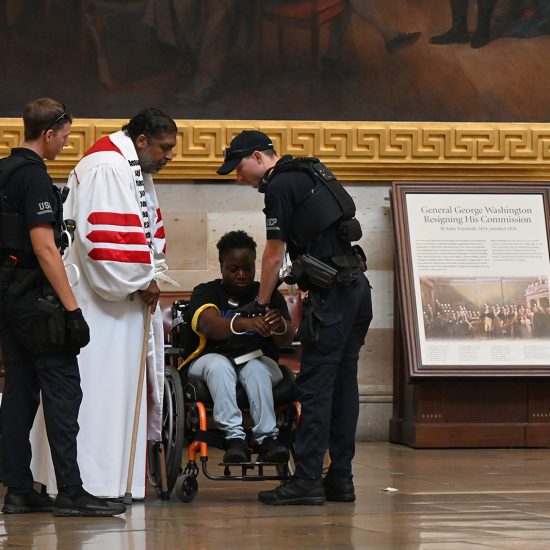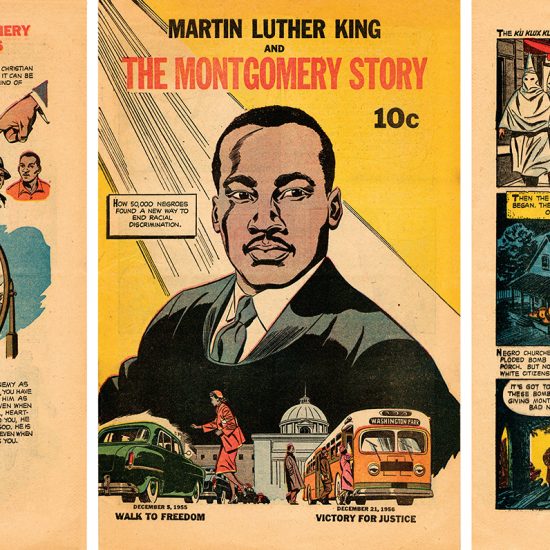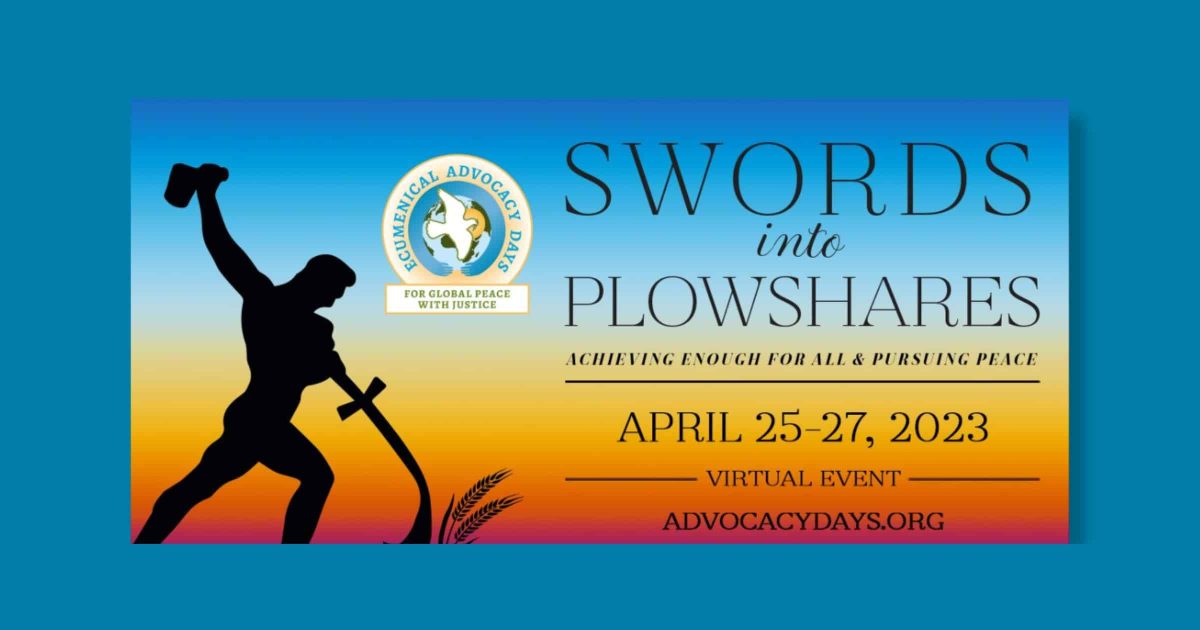
Last week, thousands of Christian advocates and activists from across denominational lines gathered virtually over three days to reflect on how their various religious traditions share a common goal: peace. Under the theme “Swords into Plowshares: Achieving Enough for All & Pursuing Peace,” the Ecumenical Advocacy Days conference met for the 20th year in a row for worship and to mobilize advocacy on a number of domestic and international policy issues.
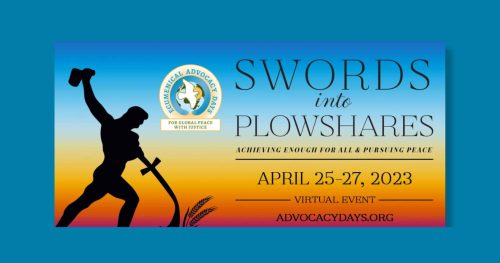 This year’s theme is a reference to the prophet Micah, who declared, “They shall beat their swords into plowshares, and their spears into pruning hooks; nation shall not lift up sword against nation, neither shall they learn war any more.” But organizers were quick to also point out that this famous verse is followed up with a specific goal in mind: “They shall all sit under their own vines and under their own fig trees, and no one shall make them afraid.”
This year’s theme is a reference to the prophet Micah, who declared, “They shall beat their swords into plowshares, and their spears into pruning hooks; nation shall not lift up sword against nation, neither shall they learn war any more.” But organizers were quick to also point out that this famous verse is followed up with a specific goal in mind: “They shall all sit under their own vines and under their own fig trees, and no one shall make them afraid.”
Though attendees represented almost every modern form of Christianity, specific denominational participation in this conference came from the Evangelical Lutheran Church in America, United Methodist Church, Mennonite Central Committee, Church of the Brethren, Episcopal Church, Presbyterian Church (U.S.A.), United Church of Christ, Christian Church (Disciples of Christ), and Catholic Church.
The broad topic of peace was approached from several unique angles, including the impact of militarization on global food security, the connections between climate change and militarism, international financial theft sustaining conflicts in Africa, why we cannot wait on reparations for Black people in the United States, and the dangers posed by environmental racism.
Rev. Michael Neuroth, acting director of the United Church of Christ’s Washington, D.C. Office and the executive committee chair of Ecumenical Advocacy Days, opened the first plenary session by admitting that he is struck by the challenges facing the global community.
“While we are fundamentally a people of hope, believing as we sang this morning that the ‘world will turn as the fires of justice burn,’ it’s important also for us to take a step back in moments like this and reflect and assess the work that we need to do as people of faith,” he said.
When discussing what drew her to the topic of peace, speaker Marie Dennis, former co-president of Pax Christi International and the 2022 Pax Christi USA Teacher of Peace, pointed to the gift of moving around the world for her work.
“[This] eventually convinced me that the multiple, the many expressions of violence — from war to preparations for war, to racism and gender violence, from environmental exploitation to gun violence, from political repression to human trafficking, and on and on — that violence was at the heart of the matter, so nonviolence has been at the center of my work for the last several years,” she explained.
Adding to this sentiment, speaker Katherine Marshall, senior fellow at Georgetown University’s Berkley Center for Religion, Peace, and World Affairs, said that she was galvanized to work toward peace when her father moved to Nigeria in 1961, the year after the country gained independence. There, she witnessed the deep unfairness of the world.
“People there who we saw every day were suffering, but even more had little chance of moving out of their suffering,” she lamented. “So the message that came to me was that this was a problem of systems. That it was not a problem of individuals.”
“And yet, there is another side of it which is what drives me and which I think drives this effort,” Marshall added. “For the first time in history, we truly live in a time when it is possible to imagine a world where there is no poverty. We have the know-how, we have the resources, we have examples. And so this question of why there is the unfairness, what are the systems that keep people from fulfilling their God-given potential — what is it that we can and we must do to open up those possibilities of hope?”
Any worship offerings given in honor of this year’s conference will be split between the Black Church Food Security Network and Swords to Plowshares Northeast.
The conference concluded with opportunities for attendees to directly lobby congressional staffers who worked for influential national politicians such as Cory Booker, John Fetterman, Tammy Duckworth, Marco Rubio, J. D. Vance, Sherrod Brown, and Kirsten Gillibrand. Russia’s invasion of Ukraine loomed front and center throughout many of these conversations.


